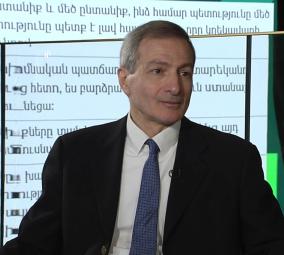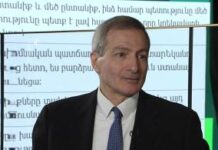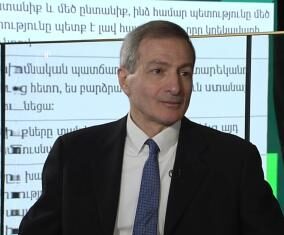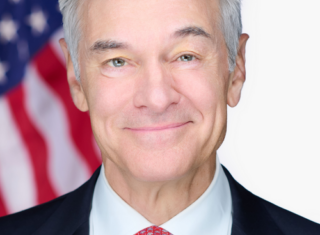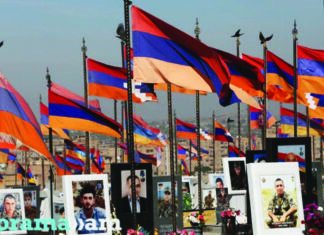DETROIT — In this deeply personal and powerful exploration, an Armenian-Syrian immigrant and Catholic priest devotes his life to helping Syrian refugees resettle here in the US, cultivating hope, friendship and a sense of belonging in the community, despite the myriad of challenges they must face.
This new documentary, presented by Detroit PBS and distributed by The National Educational Telecommunications Association (NETA), premieres on PBS SoCal on Sept. 14, 2024 and on public television stations across the United States beginning Saturday, September 28, (check local listings).
Millions of Syrians have been displaced since the time of the Armenian Genocide and more recently since the country’s armed conflict escalated into a full-scale civil war more than a decade ago. This widespread displacement has led to a humanitarian crisis, but for those asylees fortunate enough, there is hope here in the United States.
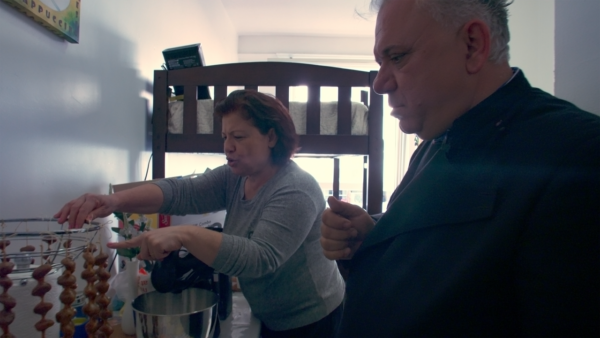
Fr. Armenag Bedrossian is beloved by his Armenian Catholic parish and his immigrant community in Los Angeles. His cell phone never stops ringing with requests for help. Going beyond his daily parish responsibilities, he is entrenched in immigrant communities to understand the cultural values, beliefs and needs of the immigrants he aids, even to the extent of pursuing a graduate degree in Islamic Studies.
“My filmmaking partner, Joseph Myers, and I created “Whatever Dreams They Had” to share the story of how one person’s actions can have a significant impact on other people’s lives,” said the film’s producer and co-director, Stephanie Ayanian of Storyshop. “The obstacles that individuals and families face as they try to build a safer and better life for themselves are overwhelming. Fr. Armenag is trying to make a difference and his example of how one person can help is inspiring.”
Throughout the documentary, we learn about the refugees who have fled their homes to escape violence. They leave everything behind to build a new life in a new, foreign country while facing monumental hurdles. Many don’t speak English, only their native tongue, and are at a loss of how to circumvent the challenges of finding a place to live, work and education.
